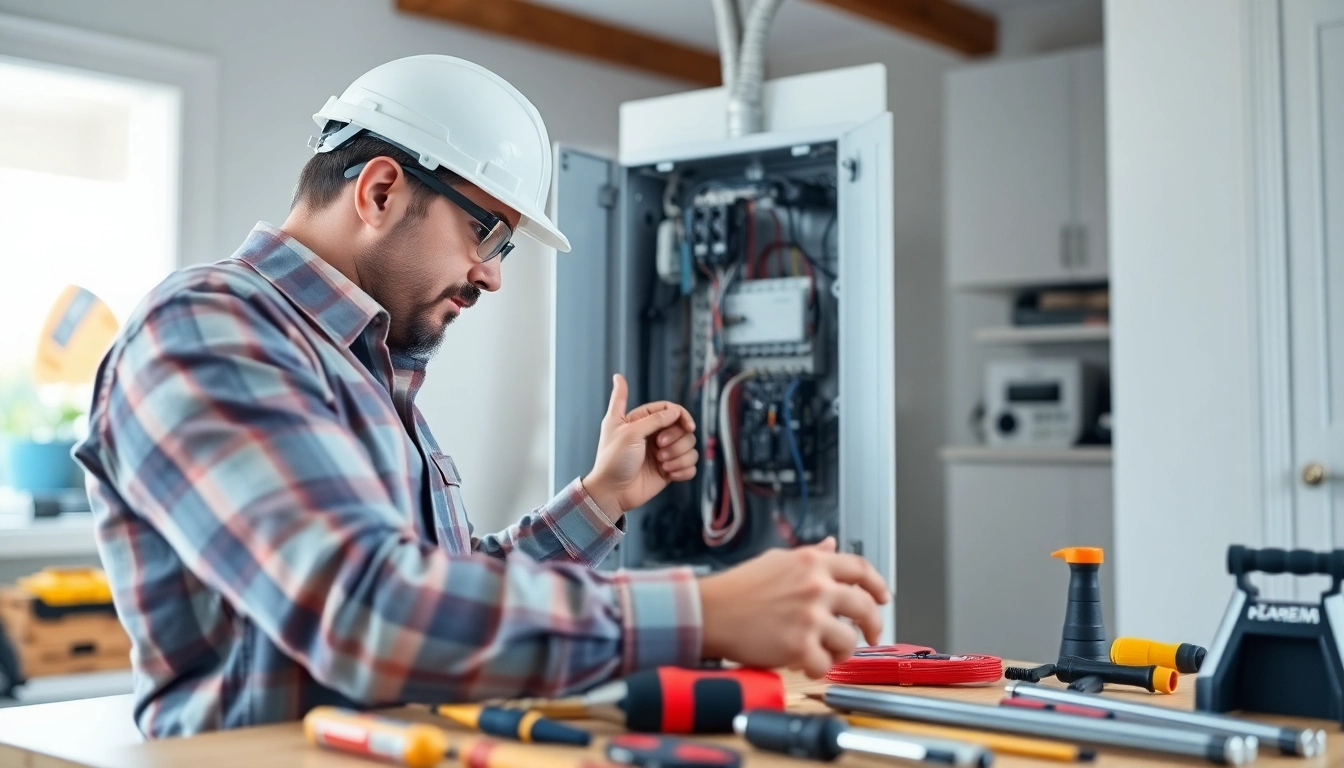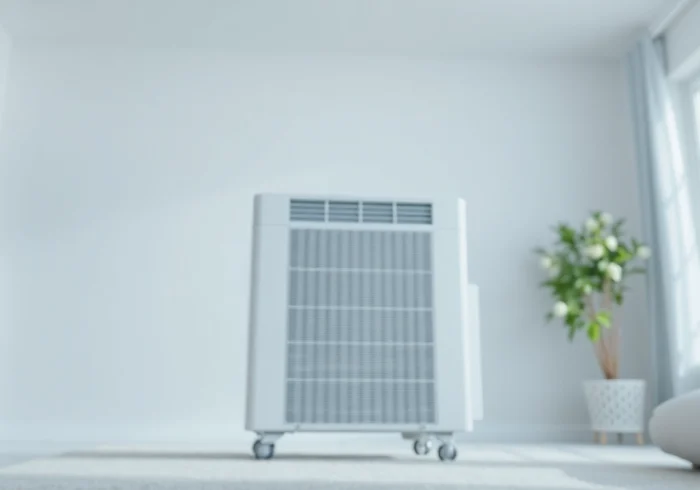What is an Electrical Panel Upgrade?
Definition and Purpose
An electrical panel upgrade involves replacing your existing electrical panel with a more modern or higher-capacity version. The primary purpose of this upgrade is to enhance the efficiency and safety of your electrical system. An electrical panel, also known as a breaker panel, is the hub of your home’s electrical system, distributing power to various circuits throughout your home. Over time, as households add more electrical devices and appliances, the demand for electricity increases, necessitating an upgrade to handle this higher capacity. In essence, an Electrical Panel Upgrade provides the backbone for a safe and functional electrical infrastructure.
Common Signs that an Upgrade is Necessary
Recognizing when an electrical panel needs upgrading is critical to maintaining safety and efficiency in your home. Here are some common signs that indicate it may be time for an upgrade:
- Frequent Circuit Breaker Trips: If your breakers often trip during normal usage, it may indicate that your panel is overloaded and cannot handle the current electrical load.
- Older Panel Types: If your electrical panel is more than 20 years old, you might have a fuse box or an outdated panel that doesn’t meet modern standards.
- Burning Smells or Discoloration: Any signs of burning smells or discoloration around the panel can indicate dangerous electrical issues, necessitating immediate attention.
- Insufficient Amperage: Homes with less than 100 amps capacity often struggle with the demands of modern appliances. An upgrade to 200 amps is commonly advisable for contemporary electrical needs.
- Installing New Appliances: Adding high-demand appliances like electric ovens, water heaters, or EV chargers may require an upgrade to ensure proper functionality.
Variations in Panel Types
Not all electrical panels are created equal. Understanding the different types can help you make an informed decision about your upgrade:
- Breakers Panels: The most common type, these use circuit breakers to protect against overload. Upgrade options include a higher ampacity panel for modern homes.
- Fuse Boxes: Older systems that use fuses instead of breakers. While still functional, they lack the safety features of modern panels and are often replaced during upgrades.
- Smart Panels: Newer technology that helps monitor energy consumption in real-time. Although more expensive, the long-term savings and efficiency can outweigh initial costs.
Benefits of Upgrading Your Electrical Panel
Increased Electrical Capacity
One of the most significant benefits of upgrading your electrical panel is the increased electrical capacity. Modern homes often operate on a 200-amp service, allowing for the simultaneous operation of multiple heavy-duty appliances. An upgrade from a 100-amp panel to a 200-amp panel not only accommodates current needs but also future-proofs your home for additional appliances or electrical devices. This increase in capacity can be particularly vital as more homes move towards electric solutions, such as heat pumps and electric vehicle (EV) chargers, which can draw considerable power.
Enhanced Safety Features
Upgrading your electrical panel also significantly enhances the safety of your home’s electrical system. Older panels may lack the safety features required to manage today’s electrical demands. Newer panels come with features such as:
- Ground Fault Circuit Interrupters (GFCIs): These prevent electrical shock by cutting off electricity when an imbalance is detected.
- Arc-Fault Circuit Interrupters (AFCIs): Designed to prevent electrical fires by detecting dangerous arcing conditions.
- Improved Breaker Technology: Modern breakers are designed to respond more quickly to threats than older models.
Support for Modern Appliances
As technology evolves, so do the electrical needs of our appliances. Today’s appliances, from refrigerators to laundry machines, demand more power. An upgraded electrical panel can adequately support these devices without overloading the system, resulting in smoother operation and longevity of your appliances. Furthermore, as the movement towards cleaner energy sources increases, the demand for features like EV chargers, solar power systems, and energy-efficient heating solutions grows. Having a capable electrical panel not only enhances your quality of life but also prepares your home for future advancements.
Costs Associated with an Electrical Panel Upgrade
Labor and Material Costs Breakdown
The cost of upgrading an electrical panel can vary widely depending on several factors, including location, the complexity of the job, and existing infrastructure. On average, homeowners can expect to pay between $800 to $4,000 for an electrical panel upgrade. Here’s a breakdown of the typical costs involved:
- Labor Costs: Electricians usually charge between $50 and $120 per hour, depending on their experience and location. Complex installations may take several hours or even days if additional work is required.
- Panel Costs: The panel itself can range from $100 to $500, depending on the type and capacity. Specialty panels or higher amperage versions are typically on the higher end of this scale.
- Permitting Fees: Most areas require a permit for electrical upgrades, adding potential costs ranging from $50 to $200.
Potential for Cost Savings with Upgrades
While the initial investment for upgrading your electrical panel may seem formidable, numerous factors suggest that it could be a wise financial decision in the long term. Here are a few ways upgrading can lead to cost savings:
- Lower Energy Bills: Modern panels combined with energy-efficient appliances can reduce your monthly energy costs significantly.
- Avoiding Costly Repairs: An outdated panel can lead to overheating, electrical fires, or damage to connected appliances, all of which could lead to greater costs down the line.
- Increased Home Value: An upgraded electrical system can add value to your home and appeal to prospective buyers, especially as energy efficiency becomes more crucial in home buying decisions.
Financial Incentives and Tax Credits
In addition to direct savings, homeowners should consider the financial incentives available for panel upgrades. Programs such as energy tax credits and rebates can help offset upgrading costs. Homeowners may qualify for federal tax credits or local utility incentives aimed at promoting energy efficiency. For instance, tax credits may offer deductions for certain improvements made to the electrical system that enhance energy efficiency. Researching available incentives can further make your panel upgrade a financially compelling decision.
How to Choose the Right Electrical Panel
Assessing Your Electrical Needs
Before purchasing an upgraded electrical panel, it is crucial to assess your home’s specific electrical demands. Consider the following steps to help you determine your needs:
- Conduct a Power Needs Assessment: Calculate the total amperage your household requires. This includes existing appliances and any planned upgrades.
- Consider Future Needs: Think ahead about additional appliances or systems you may add, such as home automation systems or electric vehicles.
- If Possible, Plan for Growth: A 200-amp panel is often recommended for future-proofing, allowing for room to grow without immediate concerns over load capacity.
Consulting with Licensed Electricians
Once you have a clear understanding of your electrical needs, consult with a licensed electrician. Professionals can provide valuable insights and recommendations tailored to your specific situation. They help ensure compliance with local codes and standards. Furthermore, a licensed electrician will evaluate your current setup, provide options, and assist you in making informed decisions while navigating the complexities of electrical systems.
Comparing Panel Options and Features
There are numerous brands and features available when selecting an electrical panel for your upgrade. Researching and comparing options based on capacity, safety features, and compatibility with your existing electrical infrastructure is essential. Consider the following:
- Panel Types: Choose between standard breaker panels, smart panels, or specialty panels designed for high-efficiency applications.
- Manufacturer Reputation: Opt for established brands with a good track record to minimize potential issues.
- Warranty and Support: Consider panels that come with a warranty or support from the manufacturer for peace of mind.
DIY vs. Professional Installation of Electrical Panels
Risks of DIY Electrical Work
Though some homeowners might contemplate a DIY approach to installing or upgrading an electrical panel, this practice carries significant risks. Working with electricity can be hazardous if you’re not experienced or knowledgeable. Common risks include:
- Electrocution: Improper handling of electrical components can lead to severe injuries or fatalities.
- Code Violations: Failure to adhere to local codes can result in fines or necessitate additional work to fix non-compliant installations.
- Increased Costs: Mistakes made during DIY projects might lead to higher long-term costs, especially if professional correction is necessary.
Benefits of Hiring a Professional
Hiring a qualified electrician for your electrical panel upgrade offers several benefits:
- Expertise and Experience: Professionals are trained to handle installations, troubleshoot problems, and ensure that everything is to code.
- Safety: They mitigate risks associated with electrical work, protecting both the property and the residents.
- Time Efficiency: Professionals can often complete the upgrade more quickly than a DIY effort, reducing the inconvenience to you.
How to Find Qualified Electricians
Finding a qualified electrician is essential for a successful upgrade. Consider these steps:
- Check Licensing and Insurance: Ensure that any electrician you consider has the appropriate licenses and insurance for your state.
- Review References and Reviews: Check online reviews or ask for references to gauge their reputation and previous work.
- Get Multiple Quotes: Compare estimates from different electricians to understand the market rates and services offered.



